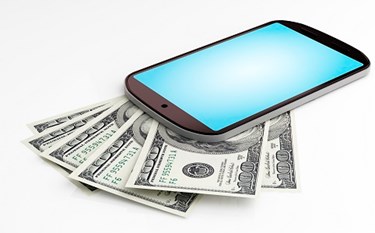$11.2 Billion Wasted Annually Due To Inefficient Communication Technology

By Christine Kern, contributing writer

A Ponemon Institute report shows where healthcare providers waste the most time and energy.
Nearly $1 million could be saved per hospital per year by using secure text messaging for clinical communications during three critical workflows: patient admissions, coordinating emergency response teams, and patient transfers. This is one key finding of a study demonstrating U.S. hospitals waste over $11 billion a year as a result of inefficient communication technology.
The Imprivata Report on the Economic Impact of Inefficient Communications in Healthcare study, conducted by the Ponemon Institute, surveyed more than 400 healthcare providers to assess the amount of time wasted during patient admissions, emergency care coordination, and patient transfer due to these inefficient technologies.
Efficient communication and coordination among healthcare professionals is critical to the delivery of patient care, particular in the increasingly mobile world of today’s healthcare and the evolution of ACOs. This study was designed to investigate how to optimize patient care through efficient communications.
Overwhelmingly, it was clear that significant time is wasted during key workflows, with an average of 33 minutes wasted during patient admission, 40 minutes wasted coordinating an emergency response team, and 35 minutes wasted during patient transfer – all resulting in overall decreased productivity and economic loss. One step that can help improve efficiency and minimize economic impact, providers believe, is implementing secure text messaging.
Key findings of the study include:
- Inefficient communication is responsible for wasting 54 percent of the time it takes to complete patient admissions, coordinating emergency response teams and patient transfers.
- This wasted time is valued at more than $1.7 million per hospital and more than $11 billion across the industry.
- According to provider estimates, secure text messaging could help reclaim almost half of this wasted time.
- The time savings would result in an estimated cost savings of nearly $1 million per hospital, per year, equating to an industry-wide savings of more than $5.8 billion annually.
The study also found 52 percent of healthcare providers cited the inefficiency of pagers as the primary reason for inefficient communications, while 39 percent cited the inability to use text messaging as a barrier.
Other barriers to efficient patient treatment cited included the prohibition of text messaging (39 percent), unavailable WiFi (37 percent), inefficient Email (35 percent), prohibited BYOD (25 percent), and inefficient Faxing (18 percent).
The report found glaring inefficiencies in provider-to-provider communications, and ultimately underscores an industry-wide trend that has a substantial impact on productivity and return. It also revealed that healthcare providers do recognize the deficiencies of pagers and the need to implement more modern solutions like secure text messaging, urging that IT must meet provider demands for more modern and efficient communications technologies that also maintain patient privacy and HIPAA and other regulatory compliance.
Estimates suggest that an average of 58 minutes could be saved across the three workflows studied by using secure text messaging.
